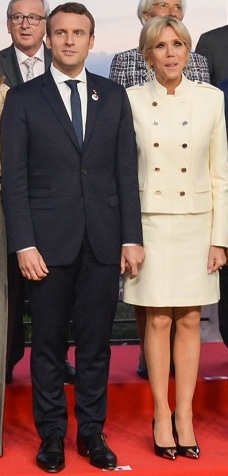Finding the Perfect Social Event: Tips for Success
페이지 정보
작성자 Agustin 작성일25-09-12 04:06 조회4회 댓글0건관련링크
본문
The secret lies in matching the event to your personal objectives, comfort zone, and practical limitations.
Below is a step‑by‑step guide that helps you sift through the noise and find an event that truly fits you.
1. Clarify Your Purpose
Before viewing a flyer, think about what you want to achieve.
Do you want to make friends, grow your network, acquire a new skill, or just relax after a busy week?.
The purpose will narrow down the types of events you should consider.
For example, a "startup pitch night" suits career‑focused networking, while a "community garden volunteer day" provides a laid‑back, purpose‑driven event.

2. Gauge Your Comfort Zone
Events vary widely in size and energy demands.
Introverts may find a crowded party exhausting, whereas a small workshop or book club might be more appealing.
Reflect on events you enjoyed or didn't and let those memories guide your choice.
If uncertain, join a mixed‑size gathering to gauge your comfort before fully committing.
3. Align the Event with Your Calendar
Time is a valuable resource.
Look at the event’s timing in relation to your work and personal commitments.
Evening events may clash with family responsibilities, while weekend gatherings might conflict with travel plans.
If the event repeats, consider whether you can maintain consistent attendance.
Single‑occurrence events are simpler to schedule, yet recurring meetups foster stronger bonds over time.
4. Budget Considerations
Even zero‑cost events can involve unseen fees like transport, parking, or attire.
Calculate the overall cost, factoring in secondary expenses, and weigh it against your budget willingness.
If finances are tight, explore community events, university socials, 大阪 街コン or mission‑oriented groups that provide inexpensive or donation‑based venues.
5. Explore the Setting and Attendees
A brief web search uncovers much about the event’s atmosphere.
Visit the organizer’s site, social accounts, or past event imagery.
If possible, read reviews or ask someone who has attended before.
Do most guests belong to a particular profession, or is the crowd diverse?.
Knowing who will be there helps you decide whether the event aligns with your networking or social interests.
6. Evaluate the Venue and Logistics
The venue’s setting can affect the overall vibe.
A well‑lit, centrally positioned venue with simple parking or transit access lowers stress.
Also take into account the event’s length, snack availability, and if it allows breaks or a flexible timetable.
For those with dietary or accessibility requirements, confirm the venue’s ability to meet them.
7. Examine the Event Structure
Some events are structured around presentations or panel discussions, while others are more free‑flowing.
Consider whether you prefer a structured environment or a natural flow of dialogue.
Take "speed networking" as an example for fast, targeted interactions, and "social potluck" for informal bonding around meals.
8. Evaluate Organizer Trustworthiness
Trusted organizers generally host well‑organized, respectful gatherings.
Find established community groups, professional associations, or planners known for reliable events.
If the event is new or run by a small group with little experience, consider whether you’re comfortable taking a risk on the execution quality.
9. Inquire Appropriately
If details are unclear, feel free to contact the organizer.
Get in touch with the organizer to find out about the agenda, attendee profile, dress code, and any requirements.
A quick reply from the organizer reflects professionalism and assists in determining if the event satisfies your expectations.
10. Follow Your Gut
After reviewing all practical factors, trust your gut.
If anything feels off—such as a mismatch in purpose or an overly loud vibe—you can confidently pass it.
Conversely, if the event feels exciting and aligned with your goals, it’s likely a good fit.
11. Plan Your Approach
After selecting an event, devise a straightforward plan.
Carry a business card or a brief personal intro if attending a networking event.
For casual gatherings, consider a few chat starters or subjects you care about.
A clear plan eases anxiety and promotes authentic engagement.
12. Reflect After the Event
Take a few minutes after the gathering to assess what worked and what didn’t.
Did you connect with the people you intended to meet?.
Did the event satisfy your intended goal?.
This reflection informs future decisions and helps you refine your criteria for selecting social events.
Choosing the right social event is less about finding the perfect "one‑size‑fits‑all" option and more about aligning the event’s characteristics with your personal needs and preferences.
By clarifying your purpose, evaluating logistics, and trusting your instincts, you’ll be able to select gatherings that enrich your life rather than drain it.
Thus, whenever you spot a flyer or invite, use this framework and move into the event that feels genuinely correct for you.
댓글목록
등록된 댓글이 없습니다.



